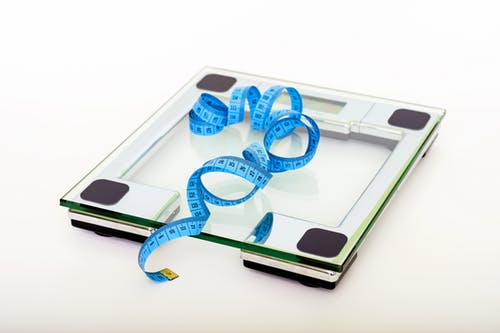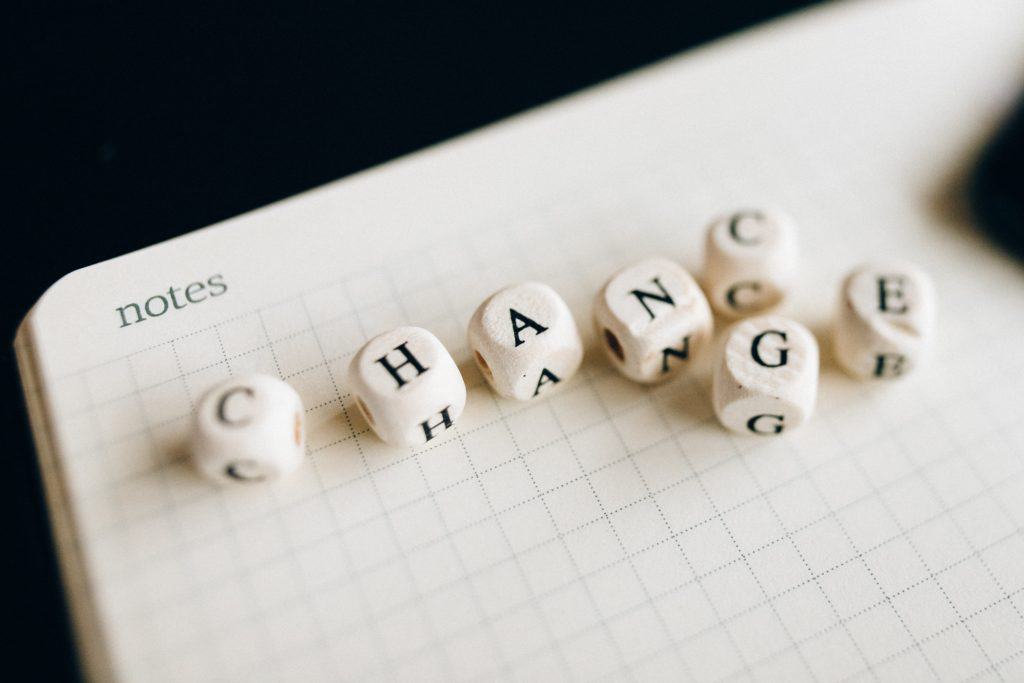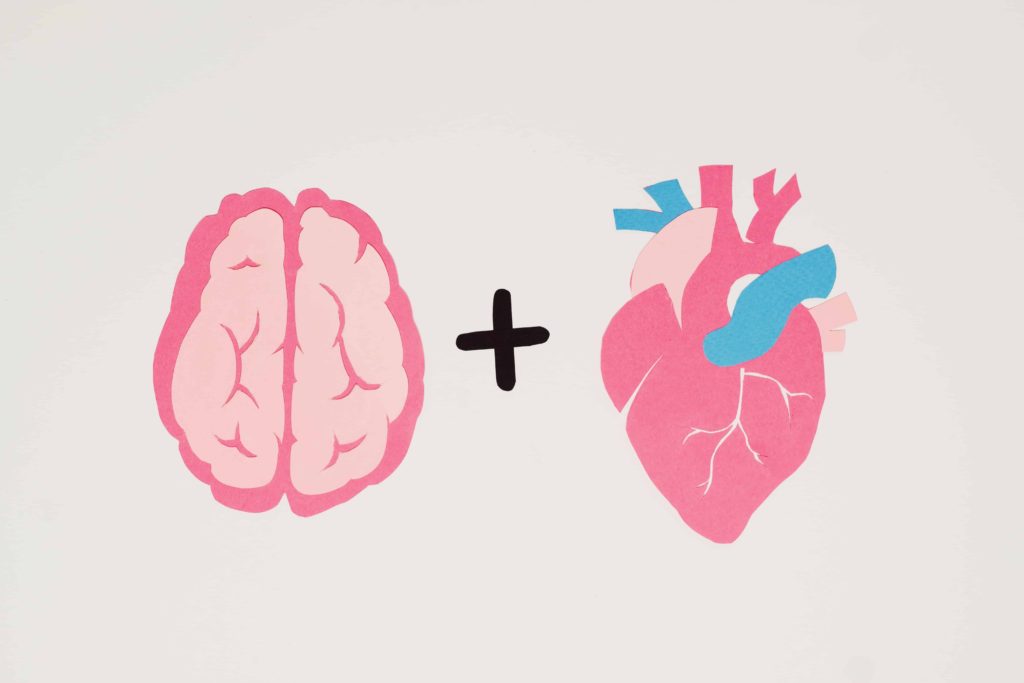At around the age of thirteen I was given a diagnosis for an illness I’d never heard of – anorexia nervosa.
What I also didn’t know was that this illness would drastically and, in many ways, irreversibly alter the course of the next fifteen years of my life and undeniably have repercussions and echoes far beyond and into my life long after I’d become free of the illness.
From the age of thirteen to twenty-seven I battled my mind while doctors told me my body was shutting down, psychologists told me my body was eating itself including my brain, dietitians told me I was at risk of falling into a coma while asleep and dying (because my body didn’t have enough energy stores to get me through a night) and psychiatrists offered me more drugs for the emptiness I felt inside.
But they could tell me little about why I had an eating disorder, why I was doing the things I was doing, what I needed to do to recover or what recovery would look like…
Throughout my struggle to recover from an illness I hardly believed I had (due to my own stigma and misunderstanding I held around it) and didn’t understand why I had it when I didn’t want to, no one seemed to have an answer or solid guidance on how to recover. The support, guidelines and protocol all seemed to stop at regaining weight to a “healthy” BMI.
There was this intense focus on weight restoration as the be all and end all of eating disorder recovery. And so, I did it.
I did it even while I knew in my heart of hearts that there was more to this than gaining weight.
I battled my soul, my deepest primal fears and I ate and ate and ate and gained weight. An experience I can only describe as excruciating in a way I’ve never since experienced and in a way that being on the other side of, I cannot truly understand or fully remember just how that really felt but I do know that many times had I been given the choice between death and eating that thing in front of me I’d have chosen death. So, even though I cannot comprehend any longer how that felt I know I did feel it.
I gained and lost and regained and re-lost weight more times than I can count.
The battle was relentless.
And through that endless battle I learned that I was right. The truth that regaining weight wasn’t going to be my full cure was palpable. But I didn’t know what else to do. Each time I had this hope that this would be the time. This time that I gained weight, this time that I went to hospital things would magically and suddenly be different. They weren’t. but still I didn’t know what else to do (and neither did anyone else).
How I Created Freedom

Years later I did accidently stumble across what would truly help fill in the missing piece of my recovery puzzle, with a lot of luck and care from people who loved me and I will be forever thankful for that. What still feels unfair is that it was not something that anyone within the fifteen years of mainstream professional medical treatment I received offered or even told me was an option. It was clinical hypnotherapy and learning to work with instead of against my mind.
After my own recovery and beginning training in and working in the field of eating disorder treatment I soon realised that the most common phrase you’ll hear therapists, dietitians and so on working in this area is something along the lines of “everyone’s recovery is unique and different. I noticed that this “but you have to find what works for you” often-followed advice. Almost like people were afraid to offer something solid and reliable and I thought how strange. Do we know nothing about eating disorder recovery? Is the best we can offer people support and guidance on how to regain weight and then leave the rest up to chance?…
The truth is it is true everyone’s recovery is different but and this is a big but there are commonalities that go beyond the commonality that weight gain is necessary in a lot of cases.
There are enough commonalities that I believe we are long overdue with developing guidelines beyond refeeding guidelines and how to know when it’s time for someone to be admitted to hospital guidelines.
Beyond Weight Gain

I believe we can do better by people in recovery from eating disorders (so much better) by offering them more certainty and more tangibles with what we know is likely to work. Just like when we help someone heal from a broken arm or recover from pneumonia, we know there are certain things that help and certain things that are going to make it worse. We also know this to be true of eating disorders and yet we tend to continue to leave people lost, floundering, confused and alone trying to figure it all out themselves (because we’re afraid to give more direction?) Imagine if we told someone with an infection that we knew could be healed by antibiotic that everyone’s recovery was different and they had to figure it out themselves? That would be very weird and dangerous and, in many cases, life threatening to that person. Yet, this is what we do in eating disorder treatment!
Hope is not a Strategy for Success

Hope is not a strategy for success.
If you truly want to succeed in recovery there needs to be a plan (just like there need to be for achieving may other things in life). There needs to be some level of certainty and belief that what we’re doing is going to give us the outcome we want (otherwise what’s the point of doing it?)
So, if we were to look at eating disorder recovery at a larger level – what would we use as protocol? What would we offer someone as steps they can take that will likely improve their chances of healing? It’s unlikely that we’ll ever make it entirely inevitable but we certainly can create the conditions where it becomes highly likely. That’s what I’m going to offer here through drawing on my experience of working with thousands of people from across the globe in recovery from eating disorders and as always the experience that I have through having been the patient.
A New Model for Recovery

Well irrefutably at its most basic and simplified core there are two components that need to be addressed when helping someone recover from an eating disorder. The physiological (physical) and psychological (mental).
I believe we have adequate protocols and support to help people understand what they need to eat in order to heal their bodies physically. There are awesome eating disorder dietitians out there and the hospital systems have protocols in place to support people physically through refeeding so I’m not going to devote time to this side of things here. If you want more information on eating for recovery you can read my book “Ready Now: Your Guide to Doing Recovery from Anorexia Different this Time” because within there I have a whole section devoted to the realities of renourishment and physiological recovery.
What I am going to devote the rest of this blog to is the less tangible and often harder place for people to find true help that helps with the mental aspect of recovery. The what to do to learn how to stop your life being at battle with your own mind and instead experience what it’s like to be on the same team as your mind.
We know this has to happen for people to successfully recover from an eating disorder.
We know people are far more likely to recover if they’re able to let go of being a perfectionist, people pleasing, rigidity, anxiety and if they’re able to gain more self-worth, self-esteem, genuine confidence and better boundaries. But the place where I see treatment get stuck is that while we know this we don’t have guidelines on how to help someone develop these skills, thought patterns and actions… which means that we support them, we nurture them, we’re kind to them (while behind the scenes many practitioners are frustrated that their clients don’t seem to be making progress, that their clients are being resistant or ambivalent or just not trying hard enough) in the hopes that with the ongoing support they will eventually get it together and chance or that they can be supported to have a safe enough life with an eating disorder and learn how to manage it, monitor themselves and just scrape by living a stuck life but at least they can maintain therapy in the community and remain out of hospital or at the very least alive.
Having worked with and helped thousands of people recover from eating disorders I think it is time to do more. It is time to really help people beyond food and talking. It is time to help people recovery psychologically.
So, how do we help someone to work on those less tangible, less conscious necessities of full recovery, a few of which I’ve mentioned above, from low self-worth to mental flexibility?…
We work with the part of their mind that is in control of those things. Their unconscious mind.
What Does Recovery Currently Look Like?

For many recovery looks like years and years and years of going over the same old ground.
It looks like slowly losing hope and those around you who care about you also losing hope.
It looks like you becoming the “sick person” and being unintentionally treated as such. It looks like stuckness, interspersed with moments of frustration, heartbreak and hope. It looks like a life that gets smaller and smaller and smaller. A life where true joy, meaning, presence and connection becomes simply a dream. Or it looks like a life cut short. Because the reality is anorexia nervosa has the highest mortality rate of any mental illness and many people don’t make it. Sometimes because their body can’t take it and sometimes because their mind can’t take it and loses all hope that a future is going to be any less torturous.
My story is not unique.
Fifteen years of weekly blood tests and vitals, dotted with traumatic hospitalisations against my will, sitting in the dreary and soul sucking office of yet another therapist or in the chair rehashing all my short fallings or sharing that I once again had failed to implement the logical and rational changes that we’d set last session (and for the last three, ten, thirteen years of sessions…), yelling at the people I loved and who were trying to help me, feeling like the most lost and alone person on the planet and then gut wrenchingly guilty and ashamed that I felt that way because I should be grateful for the life and opportunities I had.
Unfortunately, in my professional experience similar stories seem to be the norm more than the exception and while I do believe treatment has changed as eating disorders become more well understood and professionals are better trained to help. We’re not there yet where we’re offering ideal treatment let alone treatment that helps most of the time versus causes more damage.
Some people bumble their way through recovery and are lucky enough to eventually stumble across something that helps them start to make real change. But it truly does seem to come down to luck. So, what would it look like if we left recovery less up to luck?
How Recovery Could (and Needs) to Look

There is no escaping the fact that recovering from an eating disorder is hard. If it wasn’t everyone would do it and people certainly wouldn’t die from these illnesses.
I believe there are two fundamental components to truly helping someone have the best chance they can to recover from an eating disorder. One is providing the environment that supports recovery and two is working at the level at which the “problem” operates – the unconscious mind.
- Providing the Environment the Supports Recovery
What does an environment that supports recovery look like?
It looks like kindness, it looks like consistency, reliability and a steadfast commitment to that persons better, brighter future.
It looks like respect as the foundation.
Respect for the human as a human being while acknowledging that they’re stuck and providing them with the assurance and the confidence that there is a way out and providing them with and guiding them to discover their very clear and tangible actions to achieve this.
It does not look like threats, punitive measures or inconsistency.
It does not look like telling that person to try harder (overtly or covertly). It does not look like blame and punishment. It does not look like going over the same old ground a thousand times hoping this time it will be different or just because you don’t know what else to do. But for the sake of keeping this blog on track we’re not going to go into all the detail of what doesn’t help because I could go on all day about the short fallings of treatment and my goal is not to point fingers and say “let’s do better” but instead to do things better and to let that shine a light for others as an offering on how to also do things better.
- Working with the Unconscious Mind
The game changer.
People living with an eating disorder are not choosing to live with an eating disorder.
We know this.
And yet… we go on recommending and delivering treatments that ignore this. If they only tried harder, understood better the harms of what they were doing then surely, surely they’d do something different. We spend all our time and energy simply trying to “get through” to them, help them gain insight or being frustrated that they seem to have insight and yet “refuse” to change.
We need to stop doing this.
We’re literally killing people while we do this and at the very least obstructing their recovery by focusing their attention where it will not help their recovery, costing them years of their life and health in ways that sometimes cannot be completely repaired.
So, what can we do if not this?
We can recognise that they want to change but they’re stuck.
We can recognise there are reasons they’re stuck that go beyond the logical, conscious mind and gaining more education or insight.
Then we can work with then to overcome the reasons why’re they’re stuck. Which often morph and change for people over the course of the eating disorder. Why people develop an eating disorder in the first place is not why they go on being stuck in an eating disorder so finding the reasons why someone developed an eating disorder is not always the answer to helping them get unstuck at this point in their life. Which means that we’d also go a long way in helping by simply stopping obsessively focusing on the why they fell sick in the first place and focus more on the what now and into their future.
How do we help people overcome what is keeping them stuck in the eating disorder? It’s more simple than you think (not entirely easy but simple). We work with the parts that are stuck and the thing about eating disorders is that many of the things that keep us stuck are run by the unconscious. Therefore, if we are to have any chance at helping people truly break free and become empowered in their own lives we have to work with this part of their minds.
Clinical hypnotherapy and neurolinguistic programming (NLP) offer intentional and direct ways of working with someone’s unconscious mind to help them overcome deep unconscious blocks that have held them back in the past, develop new beliefs, skills and capabilities as well as help them start to develop all those things we know people need to successfully recover including self-esteem and confidence but we just don’t know how to help them gain them through traditional therapy which focuses on working with someone’s conscious mind. Which is the part of us that already has the information and knowledge, and which is already on board with wanting to make the change.
Summary

Recovery is hard. I don’t believe it will ever not be hard due to what an eating disorder is. But if we go on focusing on one aspect of recovery – the physical and food – we are going to go on leaving a lot of people stuck in a way of doing things that they do not want to be stuck in. We are going to go on letting many people die when we truly could have done more. This is painful to know because I think of all the incredible people I’ve been honoured to work with in the time I’ve been helping people learn to work with instead of against their minds and gain freedom from eating disorders and they’re all, each and every one of them been incredible, highly intelligent human beings. I really believe we are losing some of our greatest minds to these illnesses.
If we are to truly change the stats on eating disorder recovery and importantly the individual lives that those stats represent then we need to work with both the physical and mental in more intentional ways that go beyond hope, talking and even providing comfort and reassurance.
Recovery shouldn’t be endless suffering with no end in sight, seemingly no progress or perpetually backsliding and just telling ourselves it’s our fault while trying harder at what we know no longer works. That is soul destroying for anyone. Recovery is hard but that hard should be with purpose and intention to get to the other side. There are so many people all across the world who’ve recovered from eating disorders and we know full well it’s possible. Let’s learn from, compile and condense what makes it possible to give people the best chance at overcoming the eating disorder and moving on with the rest of their life in a new way. And for anyone who has recovered from an eating disorder or witnessed someone recover from an eating disorder it is irrefutably obvious that there was more to it that physical recovery and eating food. The psychological recovery is key to what allows someone to maintain the changes in their life beyond and eating disorder and simply become the person who no longer has an eating disorder.
If you’re going through hell, keep going.
~ Winston Churchill.
If you’re curious as to whether clinical hypnotherapy and learning to work with instead of against your mind could be the missing piece in your eating disorder recovery or the recovery of someone you love get in contact with me and we can arrange a time to have a obligation free and money free twenty minute “Clarity Call” to come up with a plan for working together to reach your goals if we’re a good fit.
Email: [email protected]
Or fill out the contact form on my connect page and I’ll get back to you asap.
With my whole heart I hope you found this information valuable

Become Great. Live Great.
Bonnie.


